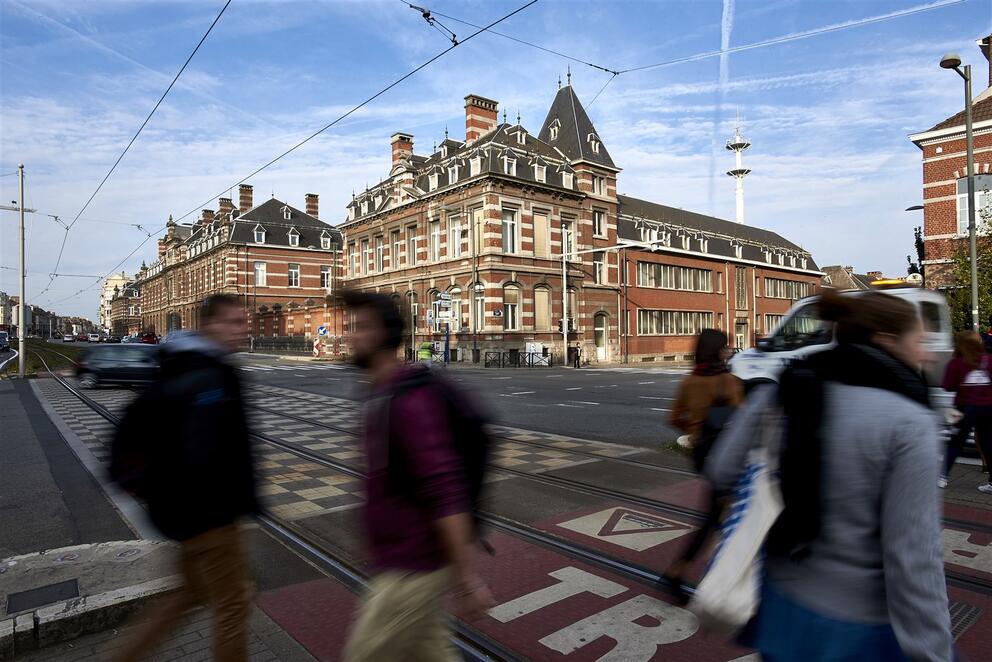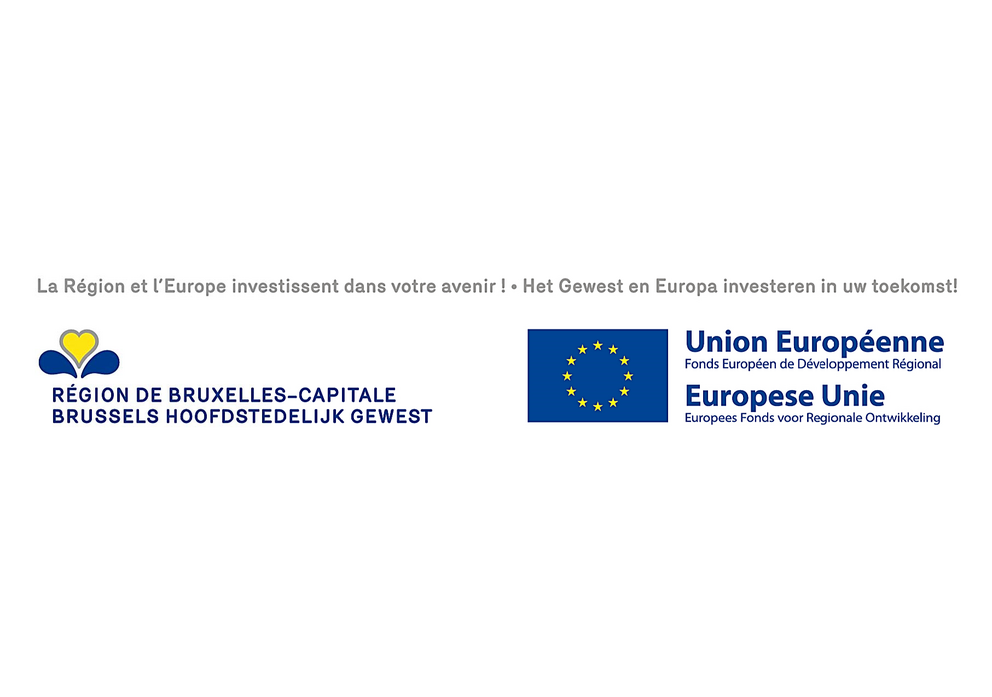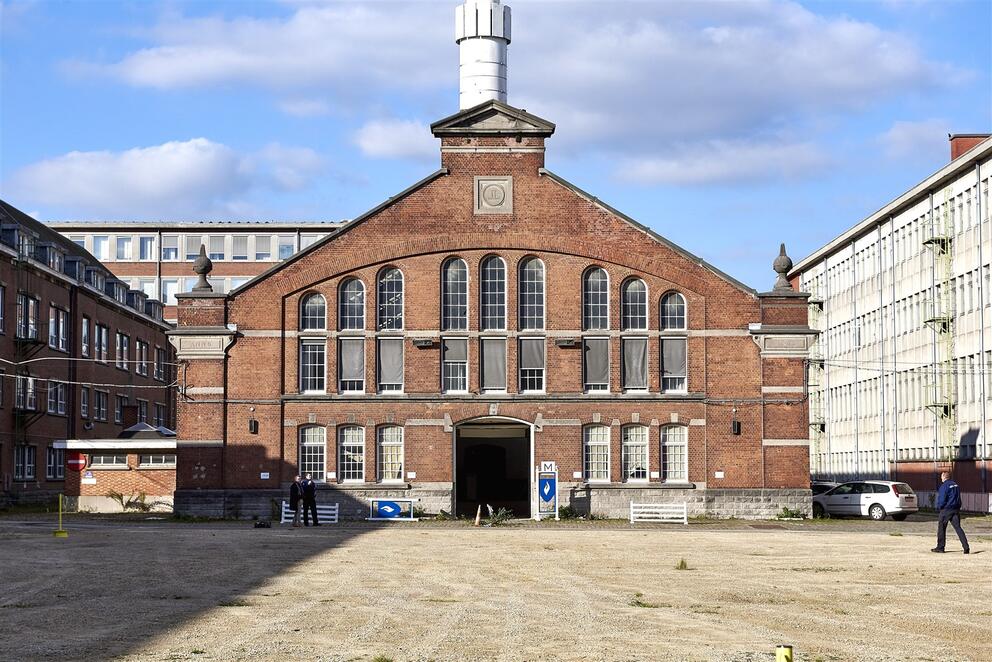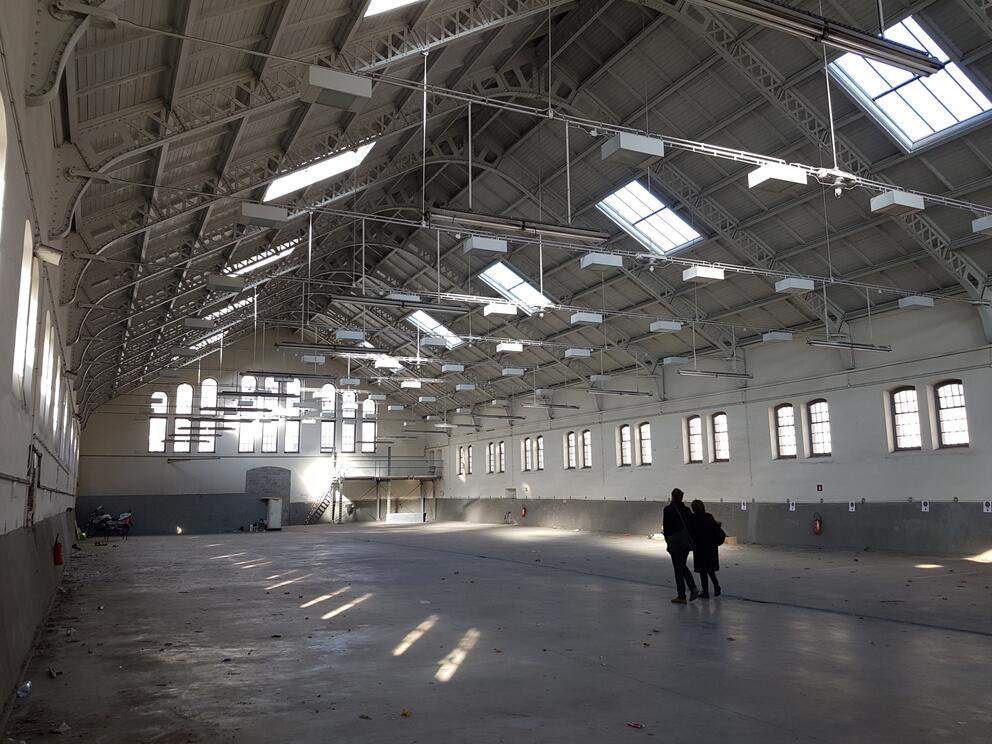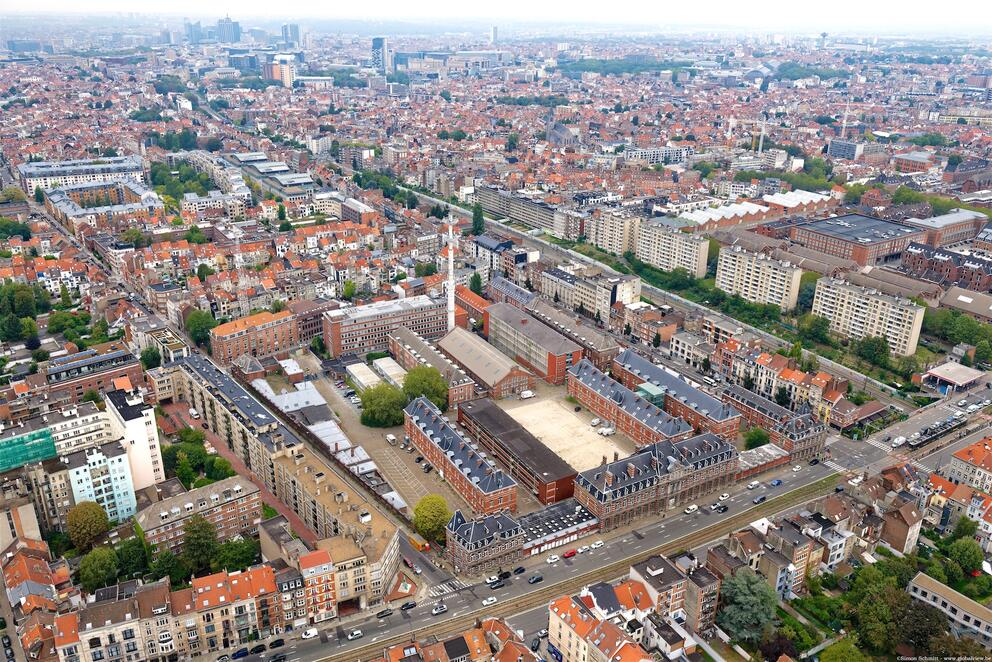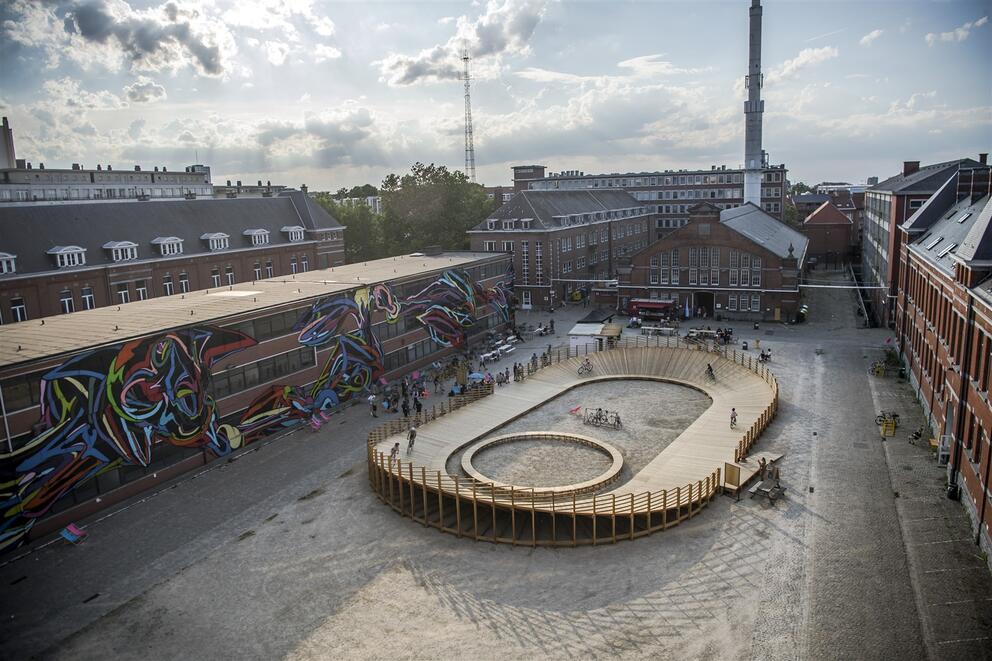Usquare.brussels: the Region issues planning permission to the SAU and to the universities ULB and VUB
Usquare.brussels, the conversion programme for the former Fritz Toussaint barracks in Ixelles, has just taken an important step forwards: the Brussels-Capital Region has issued planning permission for the first two projects for the renovation and repurposing of iconic buildings on the site.
- The first permit has been issued to the Urban Development Corporation (SAU) for the renovation and conversion of the old Riding School (where horse-riders at the gendarmerie school used to be trained) as a sustainable food court.
- The second permit has been issued to the universities ULB and VUB for the renovation and repurposing of the buildings facing onto Boulevard Général Jacques as university facilities and accommodation for researchers.
These two operations constitute part of the overall project for the conversion of the former gendarmerie school, which is being coordinated by the SAU. They will contribute to the showcasing of the site's architectural heritage and the circular economy strategy, two key aspects of the development of Usquare.brussels.
In addition to the budgets released by the Brussels-Capital Region and by ULB and VUB, these two projects are receiving significant financial support from the European Regional Development Fund (ERDF), with match funding from the Brussels Region. The ERDF subsidy is allocated as follows:
- 1,391,398.10 euros for the conversion of the Riding School.
- 9,033,200.00 euros for the conversion of the buildings fronting onto Boulevard Général Jacques.
The issuing of these two planning permits constitutes a first milestone in the redevelopment of the former barracks site. The Brussels Region’s ambition for Usquare.brussels is to develop a multifunctional district which will serve as a model both in technical aspects (the circular economy, energy performance, the architectural heritage, etc.) but also in terms of community life. For example, 3,000 tons of CO2 emissions will be avoided every year by the work financed by the ERDF programme.
The ambition for the innovative university hub is that it will feature: an international research centre: the first Institute for Advanced Study in Belgium (intended for international researchers); a Citizen and Participative Science space; an international reception centre; an interuniversity centre for urban research.
Rudi Vervoort, Minister-President of the Brussels-Capital Region, expressed his delight: ‘The ERDF’s role is once again crucial to the urban redeployment strategy in Brussels, securing the funding for the first phase in the conversion of the barracks site into university, shared and collective facilities. Our ambition is to transform a site that has historically been enclosed and surrounded by a perimeter wall into an open and diverse district that is university-centred and international, sustainable and innovative. This dynamic and welcoming place will meet the needs of the city’s inhabitants, and particularly local residents, while hosting an ambitious project of international significance with joint backing from ULB and VUB.’
Pascal Smet, the Brussels Region’s Secretary of State for Urban Development, explained that ‘By issuing these permits we are helping the transformation of our city to move forward. New life will be breathed into the site of the old barracks. By establishing housing, a university research centre and a food court there, we are demonstrating the importance of a mix of functions. This is along the same lines as the temporary occupation programme See U, which has been a great success.’
Gilles Delforge, the director of the SAU, pointed out that ‘obtaining these two permits will enable the operational development of Usquare.brussels to get started very concretely and in a way that is very visible to the general public. The conversion work on the Riding School is scheduled to begin in autumn 2021. Without changing this iconic building, the SAU will first carry out restoration work on the closed shell, so that it can then get the food court up and running. This court will eventually be one of the flagship operations of Usquare.brussels, as well as being a very useful shared facility for those living near the site.’
Annemie Schaus, the rector of ULB, stressed the international character of the two Brussels universities’ plans and the desire to make this a model project. ‘On the Usquare.brussels site, ULB and VUB are cementing a little further still their partnership in the service of Brussels and its inhabitants. Thanks to the ERDF’s support, our two universities will develop a number of research centres there focusing on the issue of sustainable development in order to come up with concrete responses to the challenges posed in urban areas, and in particular in Brussels. We will also welcome several hundred international students to the site, making it a centre for hospitality and cultural diversity.’
Caroline Pauwels, rector of VUB, commented: ‘We are delighted with these permits. With Usquare.brussels, we want to break down barriers permanently: between researchers and students from VUB, ULB and all over the world, but also locally, between the universities and local residents. Our ambition is to make Usquare.brussels a university district that creates connections. With the accommodation provided for students, researchers and guest lecturers, we want to make Usquare.brussels an international hub where researchers can meet in a stimulating setting. These permits allow us to take the next step towards achieving this ambition.’

